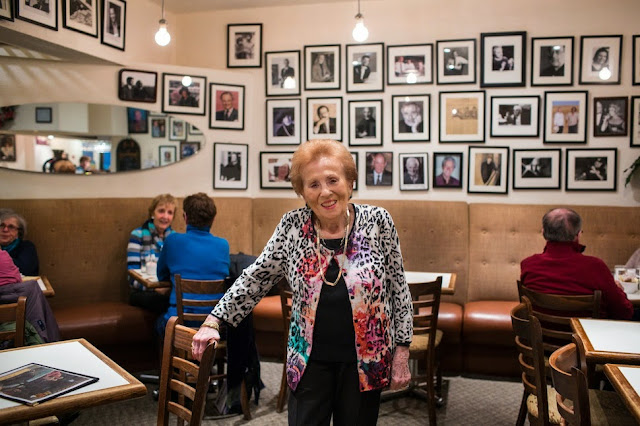Goodah Gastrotruck and the Case for Food Trucks in London, Ontario
Goodah Gastrotruck and the Case for Food Trucks in London, Ontario
BY BRYAN LAVERY
Although the pilot project process is still in its
preliminary stages, the possibility of permitting food trucks and other mobile
food vendor vehicles as: gourmet food trailers, mobile market food trucks and
ethnic- catering-type food trucks looks like a done deal.
In the meantime, The Goodah Gastrotruck is leasing space in
a private lot because it’s illegal to operate on city streets. Since December 9th,
lineups
have formed in the cold for Goodah’s hot gourmet grilled cheese sandwiches,
soups, and occasionally beef and four bean chili smothered with cheddar and
served with grilled sour dough and a side of sour cream. The gastrotruck is located in
a parking lot on Queens Avenue west of Clarence Street. You can expect to see
the truck parked in the same spot every Monday, Wednesday and Friday throughout
the winter.
Modern food trucks serve a diverse variety of healthy
options and cultural foods in other cities. They are positioned to incubate new
businesses and become an alternative launching pad, for healthy, creative food.
There is, of course, a big difference between the greasy-spoon chip wagon and
the food truck that serves healthy gourmet or ethnic street foods.
We like food trucks because they stimulate culinary
innovation and diversity, draw culinary tourists, provide employment, and
contribute revenue to the city. They help stimulate community, and are destined
to become an important part of the social and culinary fabric of the city.
Local proponents of food trucks have concrete short-term
goals. Their principal goal is to introduce the growing food truck industry to
London in a thoughtful and articulate way, by creating guidelines and following
best practices, so the current restaurant culture can continue to be successful
and not feel undermined or threatened by food trucks.
Food trucks have their detractors in the restaurant
community. Recently, Ontario Restaurant Hotel and Motel Association (ORHMA) got
in on the act. They have been involved in discussions with various Southern
Ontario municipalities, including London, on the wave of Food Trucks gearing to
set up operations. The argument against food trucks is that they're stealing
the business of more established bricks-and-mortar- restaurants.
In any event, food trucks continue to have their champions
and continue to ride a wave of popularity in part due to Food Network Shows and
the ability to leverage social media and engage community. It is true that food
trucks have some advantages over a traditional eat-in restaurant. Mobility and
the ability to travel to where the customers are is a definite plus. Generally
speaking, food trucks have lower overhead, compared to a restaurant, and
require less staff. However, a food truck is still a labour-intensive business
that requires a lot of work and attention. Entrepreneurial food truck owners
often put in long days and have comparable difficulties to restaurateurs, such
as slow seasons, unpredictable weather, sluggish economy, red-tape and
bureaucracy.
Food trucks are subject to standardized health and safety
regulations and inspections. In some cities they are required to adhere by
distance restrictions; a buffer zone separating them from existing restaurants.
Let’s hope to see some positive resolution in the upcoming months.



Comments
Post a Comment